Words by Sean Wilson
You may not know the names Riki Lindhome and Kate Micucci but you may well know their alter-egos: Garfunkel and Oates. Lindhome and Micucci adopt these monikers as part of their hugely successful stand-up musical comedy act, which is designed to celebrate “musical second-bananas” the world over.
Garfunkel and Oates delight in risqué humour and taboo subject matter, putting an acerbic twist on the mundanity of day-to-day life from relationships to the unexpected pleasures of go-kart riding. That said, Lindhome and Micucci have been branching out in recent years, and have hit the family-friendly sweet spot with their new Netflix show Waffles + Mochi.
Backed by no less than Barack and Michelle Obama, the show is essentially a culinary Sesame Street as the endearing title characters, both puppets, traverse the world learning about the joys of international cooking. Lindhome and Micucci have composed all of the food-related songs that feature in the series, all of which are performed by notable recording artists and comedians.
We caught up with the talented singer-songwriters to discuss their creative process, the challenges of writing for a younger audience, and their work on hit films including The LEGO Movie 2.
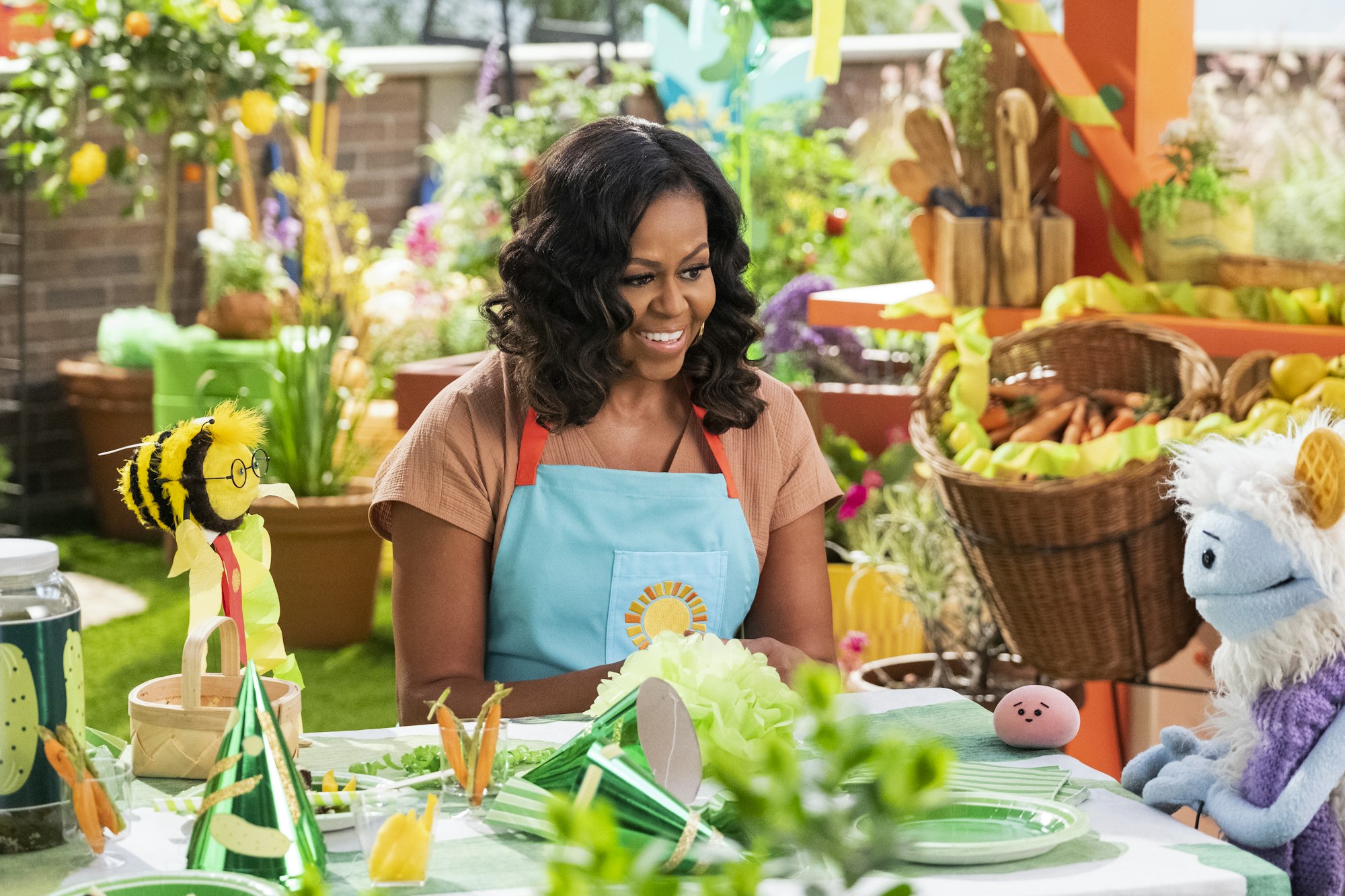
Sean Wilson: Firstly, I love your pitch for Garfunkel and Oates, a loving celebration to musical second-bananas. How did you first come to work together?
Kate Micucci: Riki and I met each other at the lobby of [Los Angeles theatre] UCB. We’d both been to see our mutual friend [stand-up comic] Doug Benson performing. I had seen Riki at commercial auditions and we both hit it off in the lobby and ended up hanging out after the show. I knew that I was going to know Riki, somehow. I just felt like it was a very important meeting. We really connected. Then we were friends for a while.
Riki Lindhome: Yeah, then we realized that we both wrote funny songs on our own. And we decided to make a short film that was a musical. We wrote songs for the short. It was really good fun and we had really good chemistry. It just kept unfolding and unfolding from there. We kept pursuing it and it became a career.
We didn’t set out to have a comedy band. We made these songs for the short that Riki directed, and then she put them on YouTube to share with her parents.
KM: We didn’t set out to have a comedy band. We made these songs for the short that Riki directed, and then she put them on YouTube to share with her parents. This was the early days of YouTube, so we didn’t really understand that people could freely watch that. I remember Riki calling me and telling me, “People are watching our video.”
RL: It was, like, a whole 1,000 people and I couldn’t believe it! So many people! I thought YouTube was just about sending someone a link. It wasn’t a thing back then.
KM: So then we decided to write more songs. YouTube kind of dictated that for us.
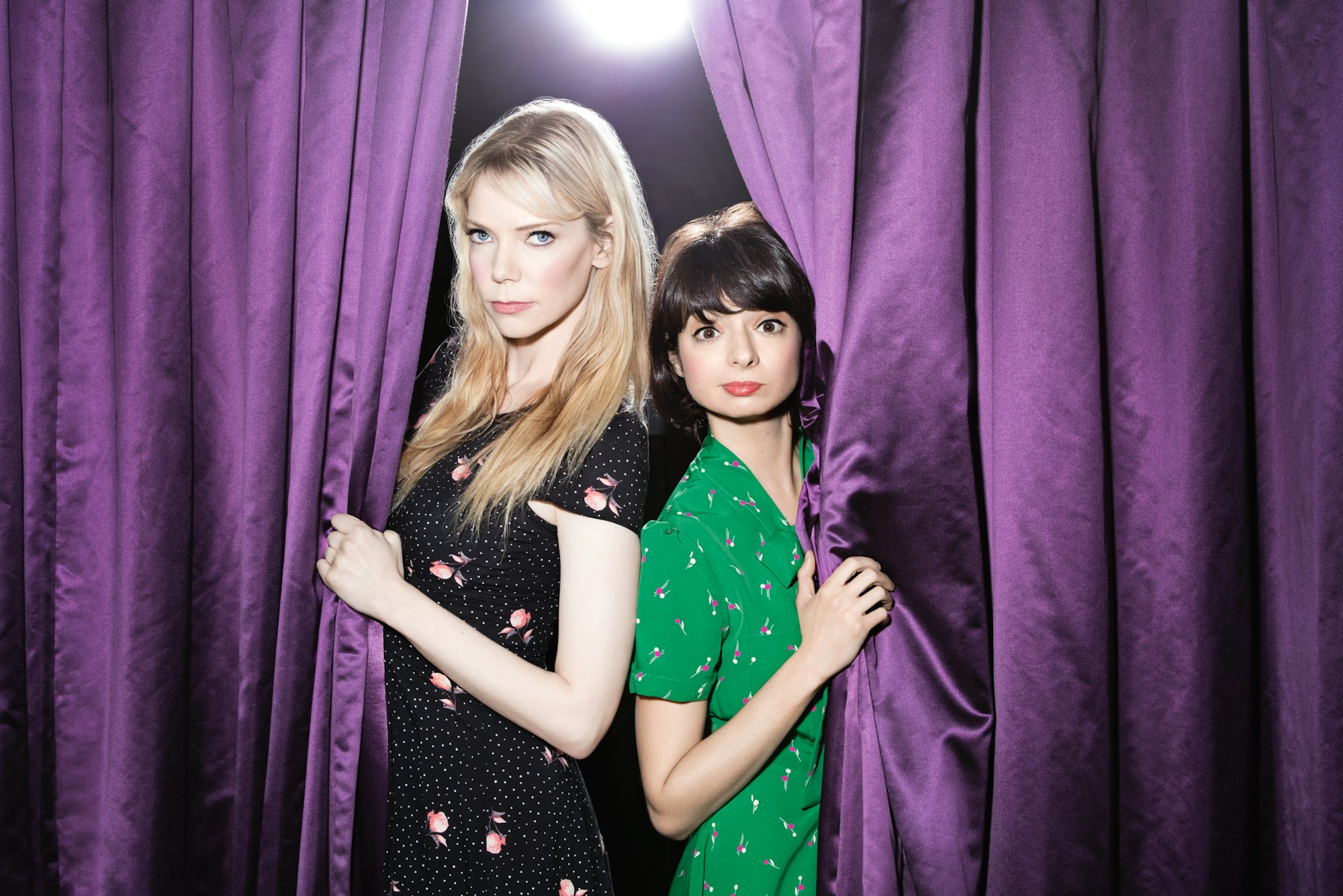
SW: So when would this have been? I’m trying to think of when that would have been counted as a milestone.
KM: 2008, I think?
RL: Yeah, 2008.
SW: On the subject of your own songs, Sports Go Sports is brilliant, because I don’t understand sports at all, let alone watching it. Is it a challenge to take something relatable and translate it into a humorous context?
RL: I think one of the challenges is if you’re a stand-up, you can tell one joke and move on. But with songs, it has to be a topic capable of sustaining four minutes. So there have to be, like, 30 funny things you can say about this topic. But with sports, there are endless things to say. It’s so fun.
KM: There have been numerous times where we’ve written pages and pages of thoughts on a subject and at the end of the day, we realise it simply isn’t a song. It’s not going to be long enough!
SW: On the other hand, some of the other songs you’ve done, like Rainbow Connections, strike a completely different note altogether. ‘Rainbow Connections’ is affectionate and funny but there’s a real poignancy to it. Is it important to diversify the tone of the songs?
RL: It’s funny, I don’t think we tend to think it through all that much. In the case of ‘Rainbow Connections’, we had this idea of a song for our friend’s wedding and then we wrote it. We then realised that people might like it, so we put it on the album. But it was written for personal reasons. Some of our other songs are on the sweeter side but we don’t usually play them live because it doesn’t tend to go that well at a comedy show. But we like having them on the album. We like writing songs like that. It’s been cool to write for animated movies and things like that because we like all sorts of songs.
SW: The acoustic guitar and ukulele set-up of Garfunkel and Oates – how did that come about?
KM: It was what we were already playing. I had already been playing the ukulele for a long time and Riki had been playing the guitar, so it sort of worked. There was also a ukulele boom around that time in 2008. It made sense and it’s also really easy to travel with. [laughs] In the early stages we traveled with a ton of props, including my trombone and Riki’s flute and all of these things. As we kept touring, we pared it down to just the ukulele and the guitar.
SW: Moving onto Waffles + Mochi, then. It’s a really charming and informative series and the Obamas are the showrunners on it. How did you get involved initially?
RL: I did a show called Another Period on Comedy Central. Jeremy Konner directed every episode and he was also a writer on the show. For that show, Kate and I did a bunch of musical numbers. So when Jeremy was at the pitch phase with Waffles + Mochi, he asked us to write a song for it, which turned out to be the Tomato Song. When the show got picked up, he asked us if we’d like to write all the songs. Jeremy was already one of our collaborators so it was pretty natural.
KM: Also, for us specifically, we had never written about food. That also, weirdly, felt very natural! It was fun.
we underestimated how lyrically complex a song could be, and if kids would love it. Hamilton really proved that kids have a much bigger capacity for song lyrics than we might have thought.
SW: You’re writing for a very specific, and much younger, demographic compared to your other work. What were the challenges of communicating essential information for a young audience?
KL: Melodically, no. We were still in our same wheelhouse. Lyrically, however, we had to pare it down to the most essential elements. We had to make it more digestible. But they didn’t really shy away from bigger words – I don’t know, what am I saying, Kate?
KM: For some songs, they really wanted us to hit certain points. For example, the Umami Song – they wanted us to teach along the way. It was a fun challenge to write within their parameters.
RL: In the pitch, they were just, like, “Write a song about a tomato.” That’s how it happened.
KM: There was freedom. The lyrics were definitely different from what we’re used to. It was fun to have a specific assignment on the day.
RL: They let us be really verbose and smush a lot of words in there. Also, watching young kids learning all of the words to Hamilton. I think, maybe, pre-Hamilton, we underestimated how lyrically complex a song could be, and if kids would love it. Hamilton really proved that kids have a much bigger capacity for song lyrics than we might have thought.
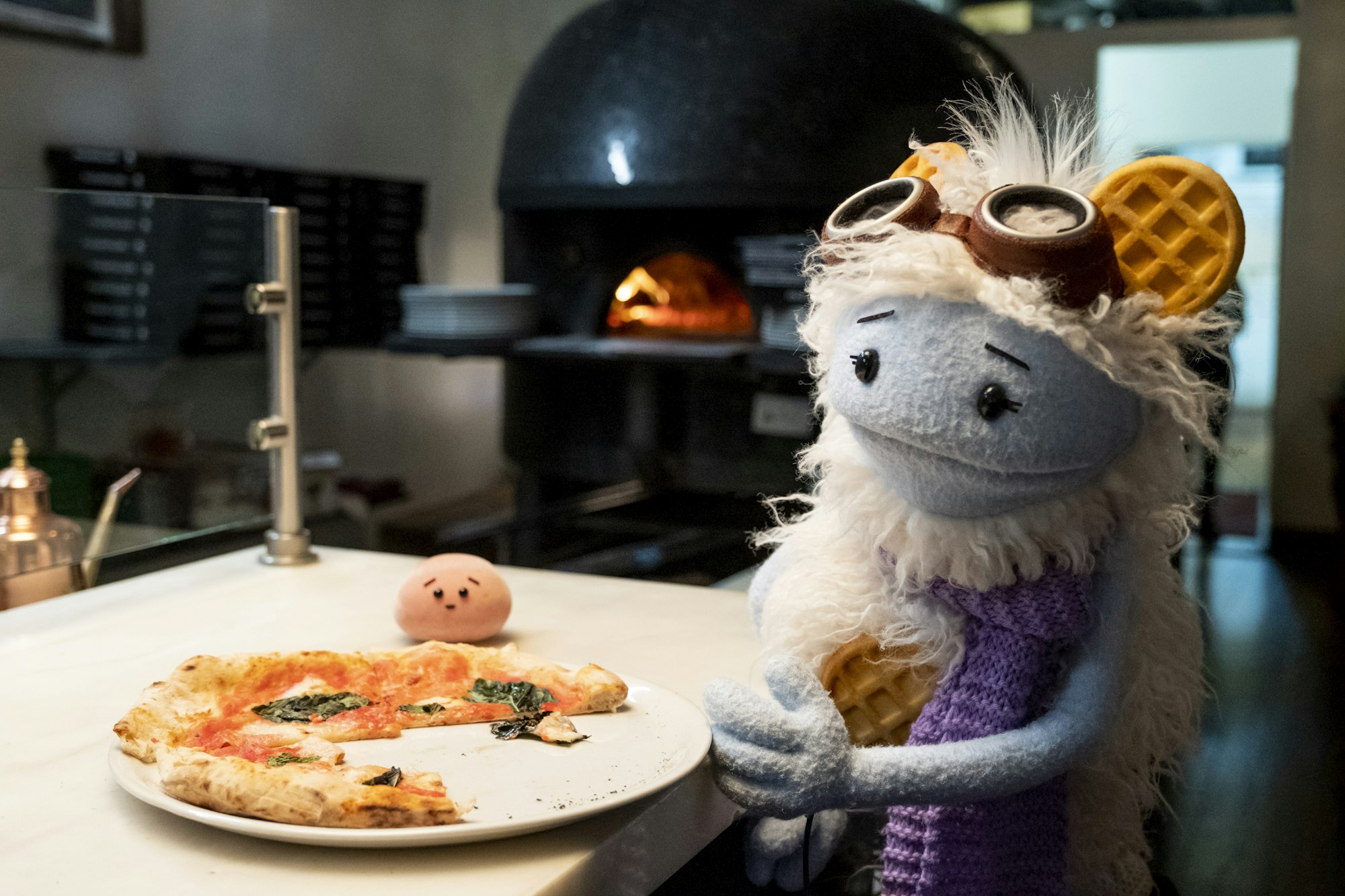
SW: Each individual food-related song adapts to the idiom of the artist performing it. The Egg Song is performed by Jack Black and it’s superbly tailored to his love of glam rock. Was it a conscious decision to mould the songs around the artist?
RL: Do you know, it never was. We were just talking about eggs and we were like, “What if an egg sang a song like ‘Danger Zone?’” That was funny, but it wasn’t until a year later that we needed to find the right person for it. Jeremy Konner used to be Jack Black’s assistant and they still work together. Jack is like the coolest guy in the world.
KM: He was just perfect for that song. It was kismet.
SW: I suppose it also plays into the nature of collaborating with other people? Did it feel different from what you both had done before?
RL: Absolutely. Doing Garfunkel and Oates, we have no notes. Nobody gives us notes but ourselves. Basically, the audience gives us thoughts. We play a song and if they laugh, that’s good, and if they don’t…
KM: We never play it again! [laughs]
KL: But yeah, on Waffles + Mochi, there are standards and practices. There are producers, writers, just a ton of people.
SW: I imagine doing a live show can be quite brutal, especially if you ask for feedback?
KM: Yeah, you could stop a given song, I suppose. There have been times where it’s been clear that the audience simply isn’t getting it. However, we still have two minutes to go. Riki and I will sometimes look at each other…
RL: And realise we are bombing [laughs] If you’re a comedian you can perhaps switch topics. But we’re in it until the end.
KM: I will say that some of my most memorable moments on stage are those moments! [laughs]
RL: I remember when we bombed at that casino. It just took forever! They were tired, they just wanted a different vibe.
KM: It felt like we were on the stage for days. I remember they gave us some chips to play afterward, but we gave them away! We just wanted to go home.
KL: There was someone outside and we were like, “Do you want some money?"
When we’re performing with Garfunkel and Oates, it’s very malleable and those songs will often change just as much as the notes.
SW: I watched the clip of your performance at the 2012 Independent Spirit Awards. That was brave to stick it to Hollywood’s independent artists live on stage. That said, there was applause at the end, so maybe it went down well.
RL: You’re right, but during it, we were like, “Oh, well!” [laughs]
KM: Also, those actors and filmmakers were right there. Right in front of us.
RL: Frances McDormand was right there, but what can you do? Once it starts, you have to go on.
KM: But you’re right, it ended really well for us.
SW: In terms of creating a song for a children’s TV show, you’re not doing it live and there is a degree of sculpting. Does that allow for more creatively liberating opportunities?
KM: When we’re performing with Garfunkel and Oates, it’s very malleable and those songs will often change just as much as the notes. It’s more about getting on stage and working it out and getting into character. That’s a very freeing experience. When you are writing for TV or film, like Riki was saying, there are more people involved.
RL: Also, with Garfunkel and Oates we’ll play it on-stage that night. But with Waffles + Mochi, it took two years for the songs to reach people, and for us to witness the reception.
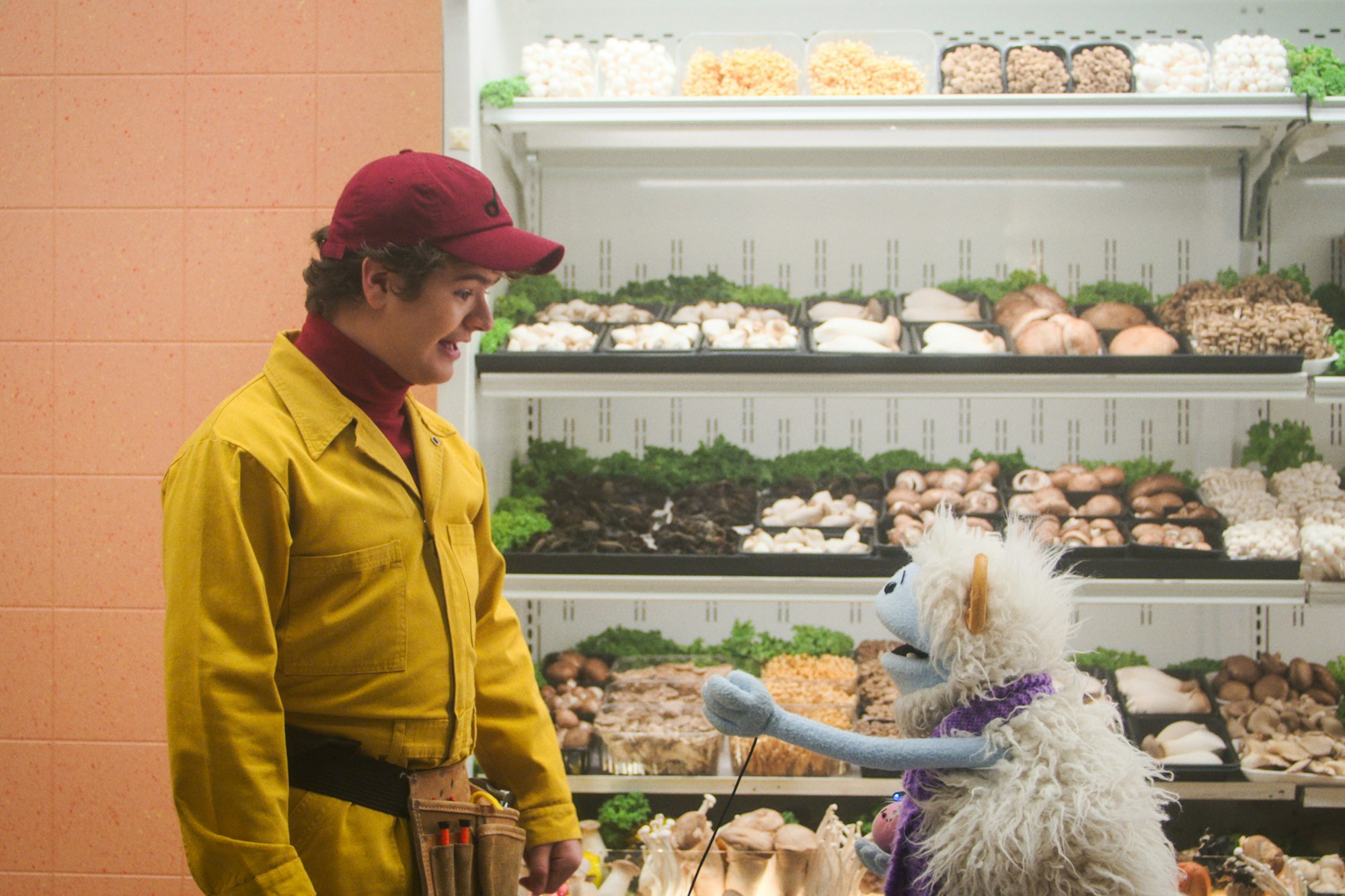
SW: I have to bring up your acoustic cover of Everything is Awesome from The LEGO Movie 2. The filmmakers came to both of you with an established hit and asked you to impart a different character onto it. That must have been, appropriately enough, awesome?
RL: It was so cool. They wanted to keep the chorus but completely change all the verses. We sent them two versions: the ’70s, Partridge Family-style version, and an '80s Hall and Oates version. They liked the ‘70s one and that’s what they ran with.
KM: We were essentially creating a pop song around Everything is Awesome, which was already such a fun, ear worming piece. I can remember the moment when we found it. We were walking to Shake Shack and then I got the piece. Then, we raced home and wrote it. That walk is where we found the song.
SW: Did the directors come to you with the request?
RL: Writing for animation is such a slow, long process. We had written songs for the first LEGO Movie and one was in the movie, but then it got cut. We’d also written songs for the Ninjago Movie, and they also didn’t end up in the film. So we essentially had a relationship with the filmmakers.
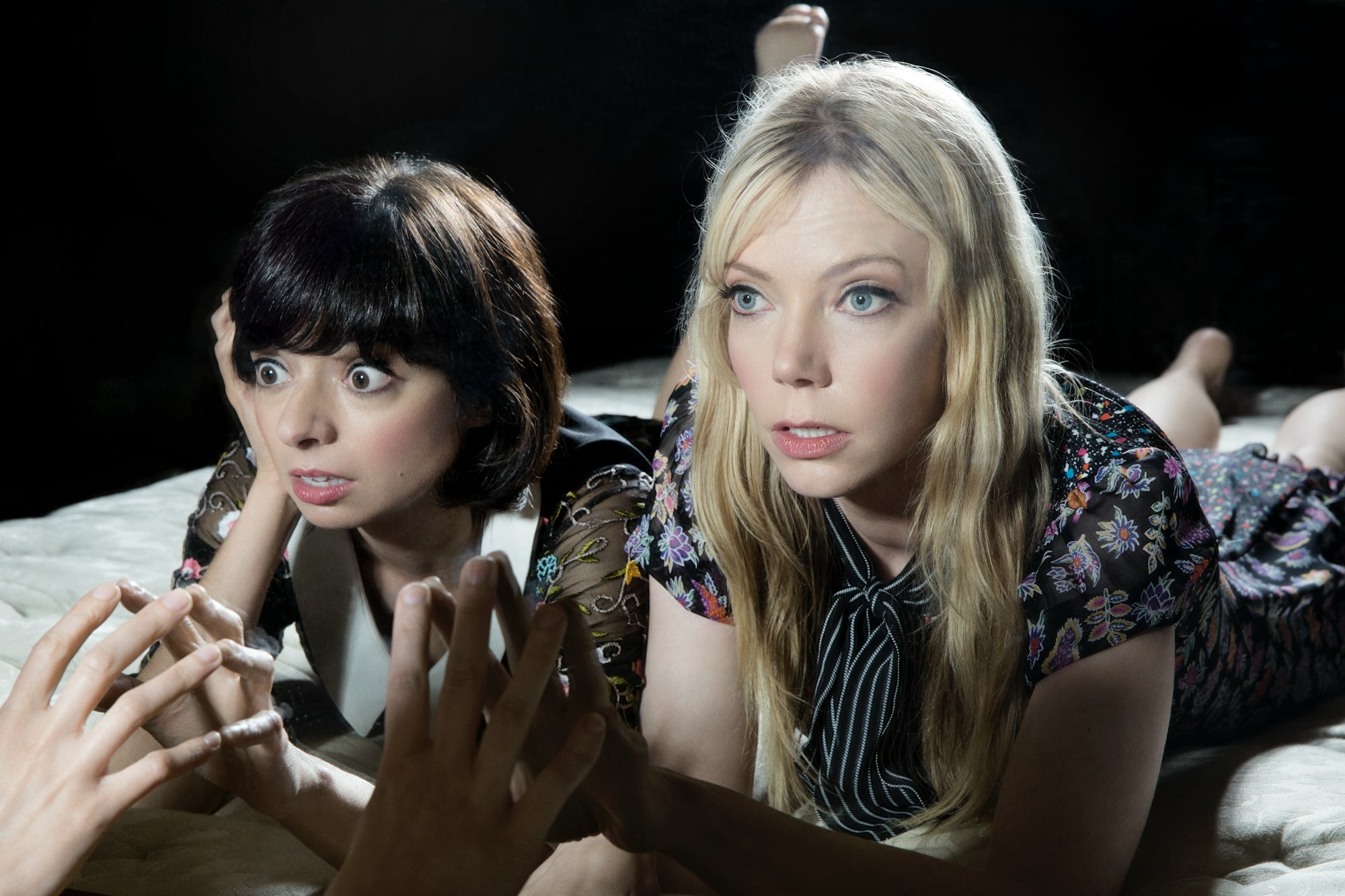
SW: Did the directors come to you with the request?
RL: Writing for animation is such a slow, long process. We had written songs for the first LEGO Movie and one was in the movie, but then it got cut. We’d also written songs for the Ninjago Movie, and they also didn’t end up in the film. So we essentially had a relationship with the filmmakers.
SW: You’ve done a lot for television as well. Are the collaborative principles still the same? I imagine working on multiple episodes must bring its own set of challenges?
RL: The thing about television is that they don’t have as much time. But that’s a good thing for songwriters. Animated movies can stretch for several years and they can change everything, like, 30 times, so songs just get lost in the ether. Because it’s animated, they can keep changing it and changing entire plotlines. On TV, they don’t have the same amount of time, meaning they can’t necessarily change their minds as much. It means your work is less likely to be cut. Once a TV script is approved, they don’t throw it out and make it into a completely different story.
KM: We wrote a song for The Big Bang Theory and that was locked in. We spent a week with them on set, going to rehearsals, and then it was just shot and done.
RL: We handed it in on a Friday and then by the next Friday, they’d filmed it live.
KM: There was more instant gratification watching the cast sing it. As Riki said, they can’t change it after they’ve shot it.
SW: You’ve both worked together on this new Netflix project Steps. What can you tell me about that?
RL: It was our idea. We brought it to Amy Poehler’s company with the idea that I was going to write the script and we both were going to write the songs. Then we sold it to Netflix. It was the opposite of how we’ve done every other song, in that there’s an existing project and they come to us. In this instance, we went to them. That’s been really cool. There were eight songs that we brought in with the pitch. We pitched ourselves as songwriters with songs that we wanted in the movie. We’d never written a full soundtrack and I’d never written for an animated movie. We wanted to have all our ducks in a row. I think half of the songs are still in the movie and we’re rewriting half of them.
KM: We sang together during the pitch, which was pretty fun.
KL: The songs are maybe halfway between Frozen and a Garfunkel and Oates song. We tried to squeeze as many words as possible into a sentence. They’re more comedic than your usual animated movie song, but there are also some sweet ones in there. There’s also a little bit of Wicked in there.
*Waffles + Mochi is now available to watch on Netflix.
